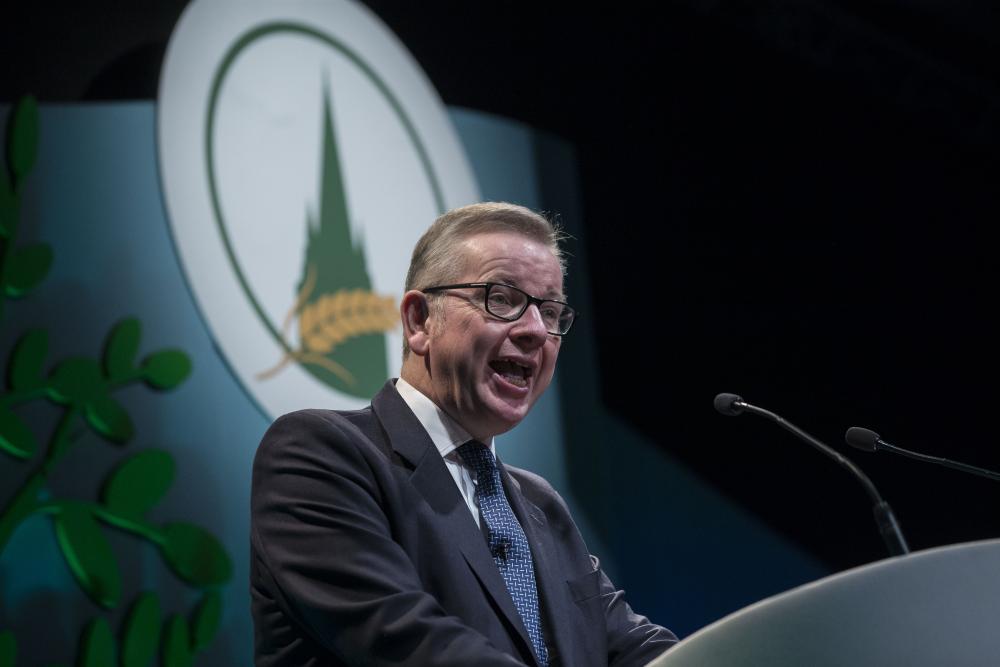
Undermining regulation and welfare standards will mean British farmers are no longer at the top of the value chain, Defra Secretary Michael Gove has explained.
Gove attended the Oxford Real Farming Conference, an alternative event to the more mainstream Oxford Farming Conference, to speak about standards in British farming.
Gove told the audience: “The future for British food is in quality and provenance and traceability and competing at the top of the value chain.
“And if we sign trade deals or lower our regulation or welfare standards in a way that means we’re no longer at the top of the value chain, then we undermine the growing strength of the very best of British food production.
He added: “Trade deals live or die by the basis by which public is prepared to support them.”
“TTIP [the Transatlantic Trade and Investment Partnership] ran up against opposition both in the UK and the EU – if we strike a deal with the US it may be that some aspects which do cause concern to the citizens here wouldn’t be allowed to get through the House of Commons.”
Farmers have a big concern with allowing lower-standard food imports to gain access into the UK, effectively undercutting home produce made to higher standards.
But in Gove's speech to the Oxford Farming Conference on Thursday, he appeared to please the farming industry with pledges to develop a "coherent policy" on food, and label produce "properly as British".
"It would be foolish for us to lower animal welfare or environmental standards in any trade deal, and in so doing undercut our own reputation for quality," the Defra Secretary explained.
Risk of lower-standard
Indeed, a report released last year warns of the potential increase in cheaper, lower standard food imports to the UK which could put British farmers at a competitive disadvantage.
It comes amid concerns that a post-Brexit deal with the US could include chlorine-washed chicken and hormone-fed beef, which are both currently banned in the EU.
A senior business representative to President Donald Trump has warned that the British public may have to accept chlorinated chicken as part of any trade deal between the UK and the US.
Wilbur Ross, the US commerce secretary, said any trade deal between the two countries would need to scrap rules that were set by Brussels.
But a sector by sector post-Brexit analysis by the NFU has identified the risk of low standard imports as the greatest trade threat to the UK poultry sector.
A number of ministers, including Michael Gove, have frequently insisted that the UK government will seek to maintain farming standards in any negotiations, but Wilbur Ross's intervention has caused alarm as the government desperately scrambles to implement trade deals.
Gove's comments appear to contradict the Trade Secretary Liam Fox's, who said he had 'no problem' with British people eating chlorinated, lower-standard chicken.
